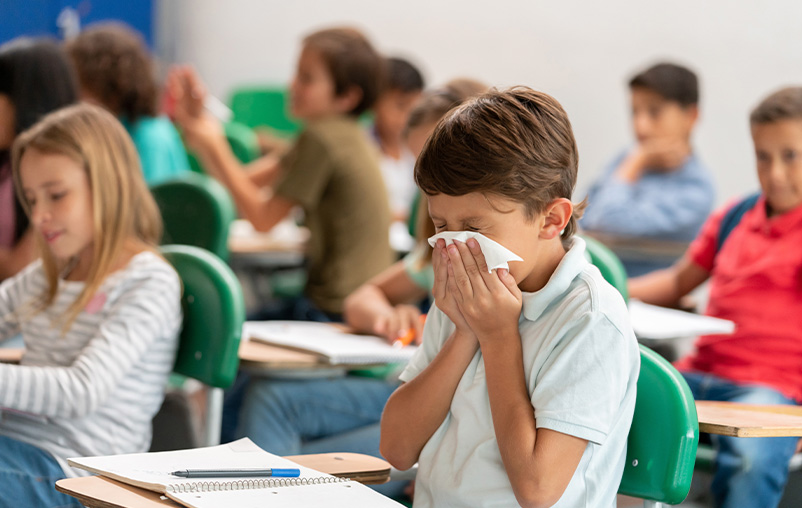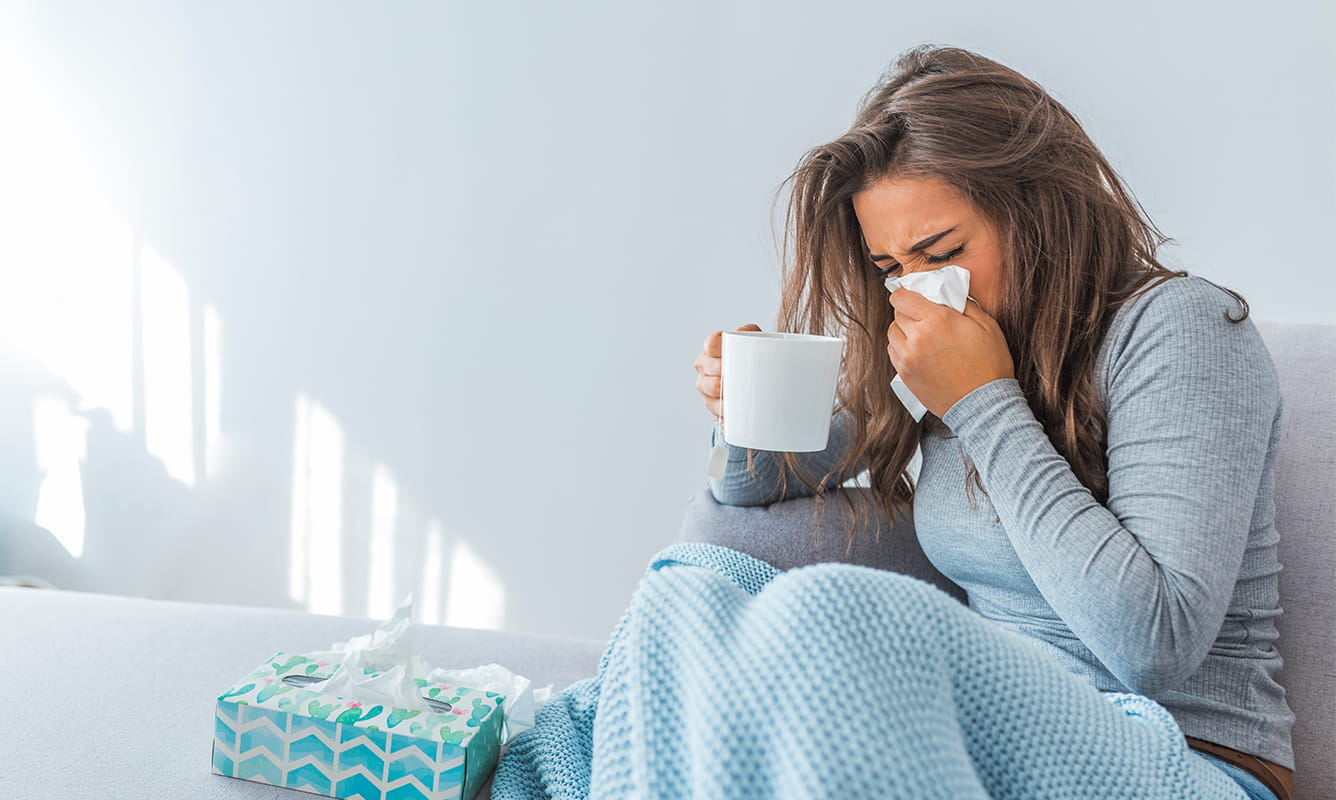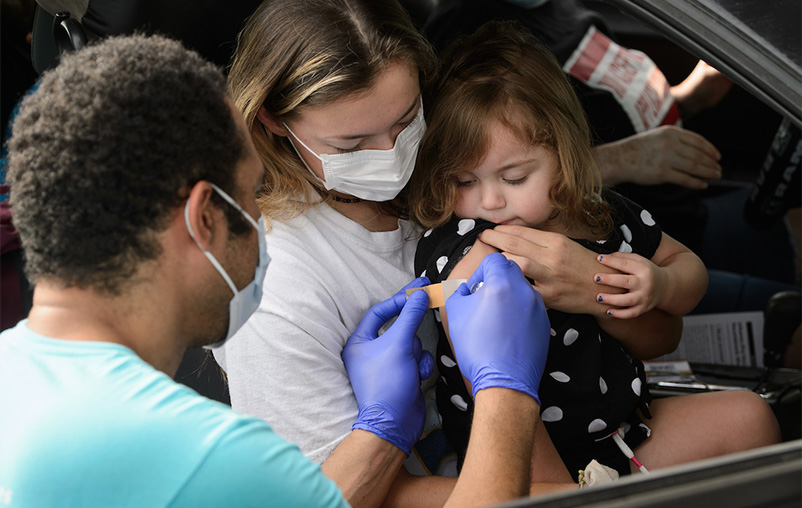Is this new COVID-19 variant a problem?
The newest COVID-19 variant that’s in the news and under monitoring by the World Health Organization and CDC is called BA.2.86. And the reason that it's in the news is because it's several mutations different than the strain that's in this upcoming COVID-19 vaccine. The good news is there are studies now that show that this new COVID-19 vaccine still provides antibody protection against this newest variant despite the fact that it's a little bit different than what's in the vaccine.
Who will be eligible for the new COVID-19 vaccine?
For the new COVID-19 vaccine, they really want to make this a simple issue. Everybody that's 6 months of age and older, just like the flu vaccine, is eligible to receive the new COVID-19 vaccine.
Does the new COVID-19 shot have more side effects than prior vaccines?
In the safety trials looking at this new COVID-19 vaccine, there are no new side effects that are noted. It's based on the same platform. The only difference is that it has a different viral strain which matches closely with what's circulating now so really it's an updated strain but the vaccines themselves are unchanged. They haven't noted any new significant side effects with this new vaccine.
How quickly will the new COVID-19 vaccine protect you?
It takes about 10 to 14 days after receiving the COVID-19 vaccine before your immune system is able to ramp up that immune response to provide protection for most people. So you should really keep in mind that once you get that vaccine it's still a week or two before you're going to have full protection.
Why should I get a vaccine if COVID-19 infection rates are dropping?
It's important for everybody to get the COVID-19 vaccine because as we know the infection rates can kind of climb and go down a little bit we have difficulty predicting when we'll see more cases. For this past week, we saw a slight decrease in cases but it very well could go back up again and we anticipate that we'll see more cases again even if we do see a continued decline now we anticipate we'll see more cases again in the wintertime.
Can I move to the Novavax vaccine if I started with an mRNA vaccine like Pfizer?
You can switch from the MRNA vaccines to the newest Novavax vaccine product if you want to do so. Right now the Novavax vaccine has ACIP or CDC approval. It's still pending FDA authorization so it's going to be out a little bit later than the Moderna and the Pfizer MRNA vaccines.
Why do I have to pay for a COVID-19 shot?
With the end of the public health emergency, there is no longer that same vast supply of purchased vaccines by the federal government. They're really moving towards moving out of the pandemic to the endemic phase similar to the flu vaccine. So now people will get the vaccine similar to they get the flu vaccine. Insurance companies will cover it depending on your insurance. That coverage may vary. There is a program the federal government is supporting called Bridge Access Program which will help to provide COVID-19 vaccines for people who are uninsured and that'll be largely through public health departments and other federal partners.
I’ve had COVID-19 three times. Do I need another vaccination?
A lot of people have had COVID-19 infection more than once at this point. Some people three times some people potentially even more than that. The problem is that you can still get another infection because protection from natural immunity doesn't last very long. The other problem is that repeat infections may be more severe than the prior infections you had or could lead to a case of long COVID-19 even if you haven't had that before. So it's important for everybody to get protected with the vaccine to really reduce the risk of these worst-case outcomes with COVID-19 infection: ending up in the hospital or dying or developing long COVID-19, and vaccines can help protect against those risks.
Will the COVID-19 vaccine now be annual like the flu shot?
They are trying to simplify the strategy with the COVID-19 vaccine. The COVID-19 vaccine schedule got a little bit complicated and they're trying to move to one dose once a year for most people to really simplify that and make it easier for people to fit into their normal lives.
Will there be some combination of COVID-19, flu shots and/or RSV vaccines?
They are looking at a combination of COVID-19 and influenza vaccine largely because everybody six months of age and older receives those, so that makes more sense to pair those together. And now that we're looking at COVID-19 vaccines likely once a year it makes more sense to try and pair it. Earlier it was a little complicated because the lead-in schedule for COVID-19 vaccines was a little bit different from the flu vaccine. Pfizer mentioned recently that they don't anticipate they'll have that combination COVID-19 and flu vaccine product until 2025, so unfortunately there's going to be a little bit of wait. But there is a lot of interest in combining COVID and flu vaccines to improve the convenience and uptake of those vaccines for everybody on an annual basis.
Who can get the RSV shot?
The good news this year is that there are two different RSV vaccines. They are indicated for people 60 years of age and older. So it's recommended that if you're 60 years of age and older you talk with your doctor and see what risk factors you have. Most people should get that if they're 60 and older. We see that there are RSV infections in a pretty good number and people 60 years of age and older tend to have more severe illness with RSV.
Can you get the different respiratory virus vaccines at the same time?
You can get all of the respiratory virus vaccines at the same time. So there are three of those if you're 60 years of age and older: RSV, influenza and COVID-19. If you're younger than 60 you can get the COVID-19 and influenza vaccines at the same time. It's a lot more convenient. You can get those in separate arms and there's no problem with having an immune response by getting them both at the same time.
Should I start masking up again to protect myself and others from spreading flu, RSV and COVID-19?
What I would recommend is that everybody do their own risk assessment. People have different tolerances for risk. Right now we're seeing a lot of COVID-19 transmission in the community. I would recommend if you're at high risk for complications or severe illness from COVID-19, meaning if you're over 65, if you have underlying medical illness, if your immune system is compromised for medications or underlying illness, I would recommend wearing a well-fitted, high-quality mask. If you're going to go into a large public crowded setting I would definitely consider that because there are going to be people in that setting who have minimal or asymptomatic COVID-19 that potentially transmit to you. So wearing a mask would be a good idea for those people. I think everybody needs to do their own risk assessment and determine what they want to do.
What can I do to protect my kids against RSV?
RSV is a challenge particularly in children and particularly our youngest children who are less than 12 months of age. One of the things you can do is to try and keep your kids away from other sick kids — that's a lot easier said than done. We really want people who have sick kids to keep them out of school until they're better so they're not transmitting. There is a new product that's available that was just approved this summer by the FDA called nirsevimab which is a long-acting monoclonal antibody, and that's indicated for infants that are less than eight months of age entering the RSV season start starting October which is really right around the corner to receive this long-acting monoclonal it lasts for about 5 months so that's about the length of the RSV season so there is now a product available for our youngest of children at less than 8 months of age that are at the highest risk for severe RSV infection hospitalizations and bad outcomes.
Is there any benefit to spacing out the COVID/flu/RSV shots or other vaccinations?
Some people choose to space out their vaccines and that is understandable. Some people want to have one vaccine at a time and deal with potential side effects like sore arm one at a time. There is not a problem from the immune system’s standpoint of getting them all at once. My biggest concern when people space out their vaccines is they may not return for all of the vaccines that they need that they qualify or eligible for, and so you don't want to miss out on that opportunity so that would be my biggest concern if someone were to space them out is that they don't miss out lose that chance to come back and get all of the vaccines that they should to keep themselves protected.
How long should I wait to recover from an illness before getting vaccinated?
The general recommendation, to use the COVID-19 vaccine as an example since there's a lot of people right now that are recovering from COVID-19 infection or had one recently, is that you can wait about 12 weeks or 3 months after that infection to get that COVID-19 vaccine. That's to get the best immune response. There's no concern from a safety standpoint from getting it even immediately after getting COVID-19 infection but you're going to get a better immune response if you wait a little bit of time for your immune system to be able to settle down and respond to that vaccine.
Is this a new vaccine or another booster?
The government's been very careful to clearly call this a new vaccine and not a booster. That's because this new COVID-19 vaccine does not contain the original strain — it's the first vaccine that does not contain the original strain, so it's not boosting the prior responses you may have had from receiving a vaccine in the past. This contains a new vaccine strain that hasn't been in COVID-19 vaccines before and that's why they're calling it a new COVID-19 vaccine.




